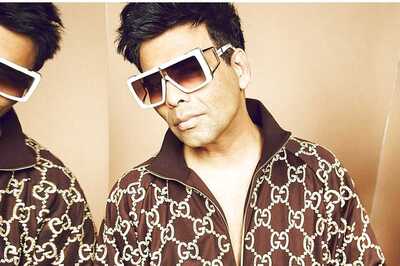
views
New Delhi: The Indian philosophy of reincarnation takes humankind towards the idea of basic morality, Supreme Court judge RF Nariman on Saturday said.
Delivering the 7th Dr LM Singhvi Memorial Lecture here on the topic "Reincarnation: Comparative Religious Perspectives", he said reincarnation and karma were like Newton's third law.
"Indian philosophy of reincarnation takes us towards the idea of basic morality. It explains that you should be compassionate to every living being. It further explains the lives of heroes and stalwarts," Justice Nariman said.
He, however, said there are some pitfalls in the idea of reincarnation. "The idea that you are being punished. It is entirely earth centric - Ostrich-like. There is no law of karma which attaches to animals and plants. To be born as a human is the best life form," he said.
He also said that all the three indic religions — Jainism, Buddhism and Hinduism — talk about the idea of 'transmigration' and that the "karma model by and large tends to explain everything". He said there are three great faiths that permeate India talk about reincarnation.
"The first is Jainism. Mahavira went to the eternal essence of 'Jeeva'. There is a wheel through you transmigrate, and the curator of the wheel is Karma!"
Buddhism touches upon two interesting ideas — it says, what transmigrates are heredity and character. The first important thing about Buddhism is, that Buddha refused to believe in the idea of soul. He believed that what you are doing right now is Karma and decide your future life. Your Karma accounts are taken, you have good vs bad, deciding your fate," he said.
"The basic stress of Rig Veda is on creation of life. Garuda Puran talks about the idea of 'Pinda' ritual that throws light on reincarnation. According to Hinduism, you can reincarnate in any of the life forms," Justice Nariman said.
The event was presided over by former Governor and diplomat Gopalkrishna Gandhi. Laxmi Mall Singhvi was a jurist, parliamentarian, scholar, writer and diplomat. He was India's longest-serving high commissioner to the UK in the early nineties.
A pictorial biography of Singhvi penned by his son Abhishek Singhvi titled "The Journey of a Wise Man: LM Singhvi" was also released on the occasion. Published by Palimpsest, the book has rare photographs and documents of historical importance.
The author, a Rajya Sabha member and a legal expert, throws light on the circumstances leading to his father's pioneering initiatives on the Indian diaspora project, institution of the Lokpal and panchayati raj heading two high-power committees.
The book also has essays by former diplomats Lalit Mansingh and Gopalkrishna Gandhi, former CJI R C Lahoti and veteran BJP leader Murli Manohar Joshi on different aspects of L M Singhvi's contribution to diplomacy, politics, culture and jurisprudence.


















Comments
0 comment